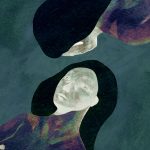House and Home: An Essay On My IAPSP ECP Scholarship Experience

by Meredith Nocek
When I think of my experience as an ECP scholarship recipient, what immediately comes to mind is the warmth and generosity of the people I met through IAPSP. From Shake Topalian’s welcome email, ushering me in with helpful details and introducing me to my cohort of fellow ECP recipients, to my profoundly impactful mentorship with Amanda Kottler, where the two of us co-created a year-long mentorship that was nothing short of the twinship I longed for in a mentor. The entire ECP experience was life changing. Indeed, the IAPSP community is both nurturing and collaborative, and it allowed a young seedling to blossom personally and professionally. What’s more, the scholarship enabled me to grow as a clinician in private practice and it prepared me to be a first-year psychoanalytic candidate this fall.
Although it feels like my introduction to IAPSP was long ago, in reality, it has only been a year and a half. At the time, I was longing for connection on many levels given it was mid-pandemic, and so when I heard about the ECP scholarship, the timing couldn’t have been better: it felt like a perfect next step for my career. While I had established a private practice in Boston for several years and was looking forward to beginning my comparative psychoanalytic studies at MIP, I knew in my gut that self psychology was my home. Having a home without a house would no longer do! I was concerned, however, that my interest in self psychology would not flourish and would ultimately be muddled as I studied and practiced psychoanalytic theory comparatively. The ECP scholarship experience created a safe space where my mind was allowed to play and connect with peers and learn from senior clinicians. Because of these stimulating selfobject experiences, I have been able to integrate my feelings of “house” and “home” through IAPSP, which I look forward to carrying into my comparative psychoanalytic studies.
One of the more impactful aspects of the ECP scholarship was receiving a year-long mentorship from a senior IAPSP clinician, who Shake thoughtfully paired each scholarship recipient with. As I mentioned, Amanda Kottler was, and I like to think remains, my mentor. Looking back, I think more so unconsciously, I was longing for professional twinship. I had this in so many ways with my own therapist and a few colleagues at the time, but perhaps was not aware until meeting regularly in the past year how much a meaningful assymetrical, female to female relationship I had been wanting. Her knowledge of self psychology and remarkable ability to recall it during our discussions felt impressive, yet humble. Amanda’s intellectual capacity as a self psychologist feels both admirable and approachable. Beyond our intellectual discussions, Amanda supported and encouraged me through both her words and willingness to be vulnerable. Throughout our monthly meetings, I could feel my personal and professional self expand, which was certainly my hope with the ECP scholarship.
I later learned that our virtual cohort meetings were a silver lining from the isolation of the pandemic, which I very much hope will be an ongoing part of the ECP scholarship experience. My cohort and I met virtually every other month to share and collaborate our individual work with national and international peers. At each meeting, Shake invited a senior clinician to share their work with us. I believe this part of the ECP scholarship is extremely helpful, this is not only because of the knowledge the senior clinician shared, but it’s also because it’s so important for early career self psychologists to have access to senior clinicians to foster the interconnectivity and the perpetuation of the self psychological community and legacy.
My ECP scholarship experience is one that has and will continue to impact my career in only positive ways. I wish for anyone in their early psychotherapy career who has the desire in both their mind and heart for self psychological theory and practice to apply to this program. While I think it is not unusual for clinicians who have not yet studied self psychological theory to know on an intuitive level what they are longing for even before finding the words and structure of Kohut, I do believe it is sometimes difficult for some to find their home and house in one. I feel fortunate to have found that through my ECP scholarship and to continue that in being an IAPSP member in the future.
Meredith Nocek
Meredith Nocek lives in Boston, MA where she is a first year psychoanalytic candidate at the Massachusetts Institute for Psychoanalysis. Meredith has a private practice in Boston where she works with adults, primarily women, with a focus on themes of self and identity.

